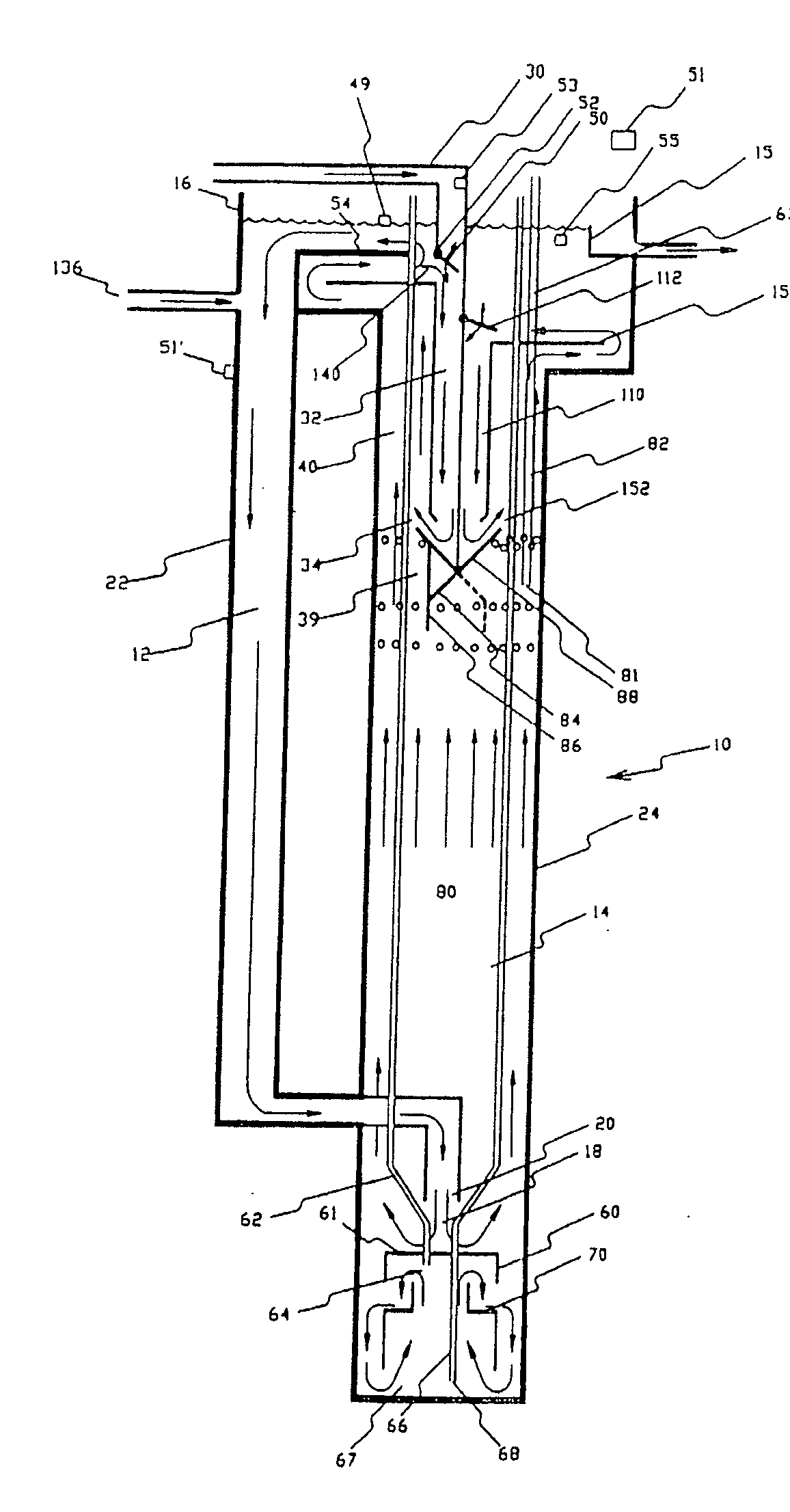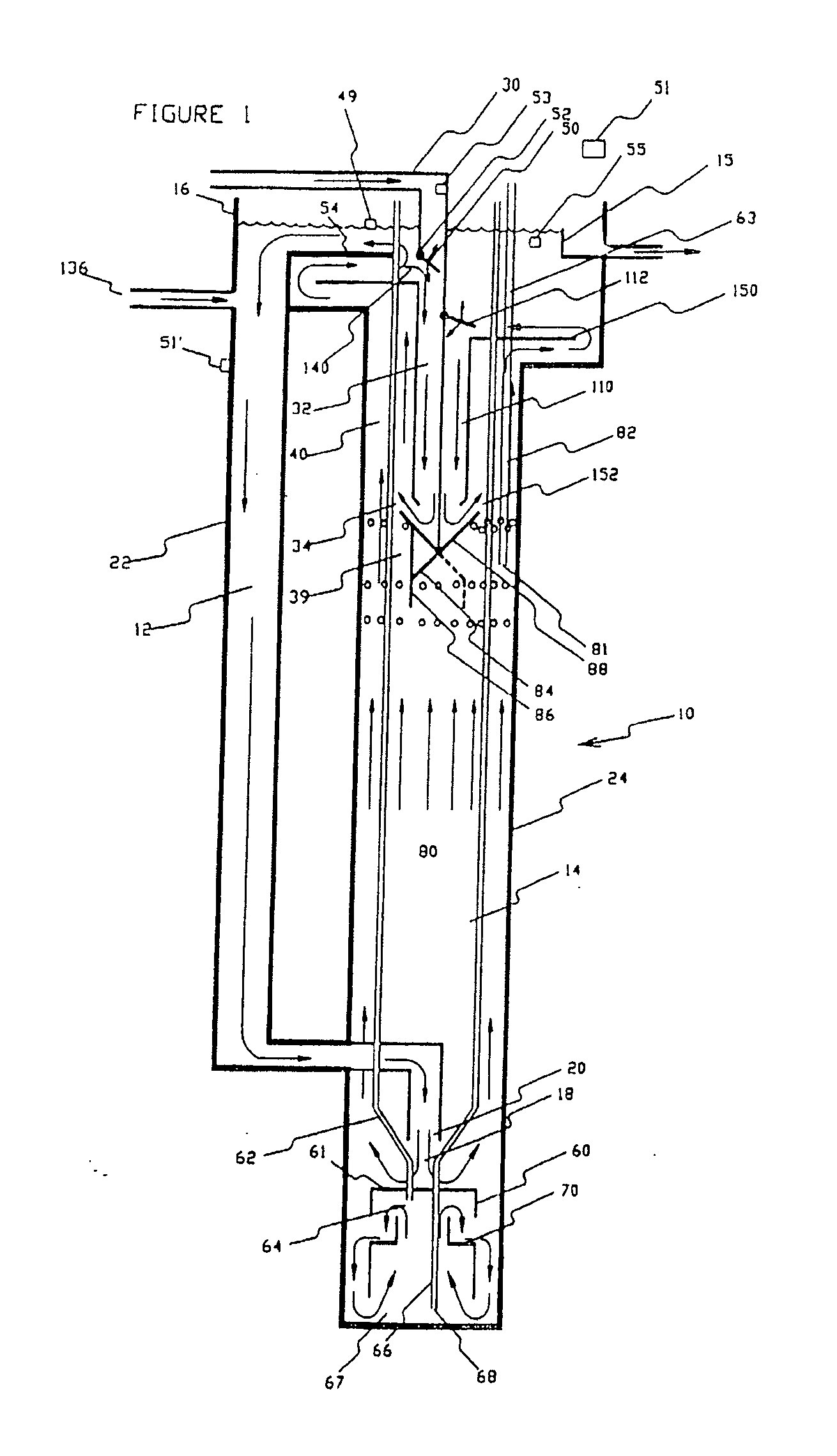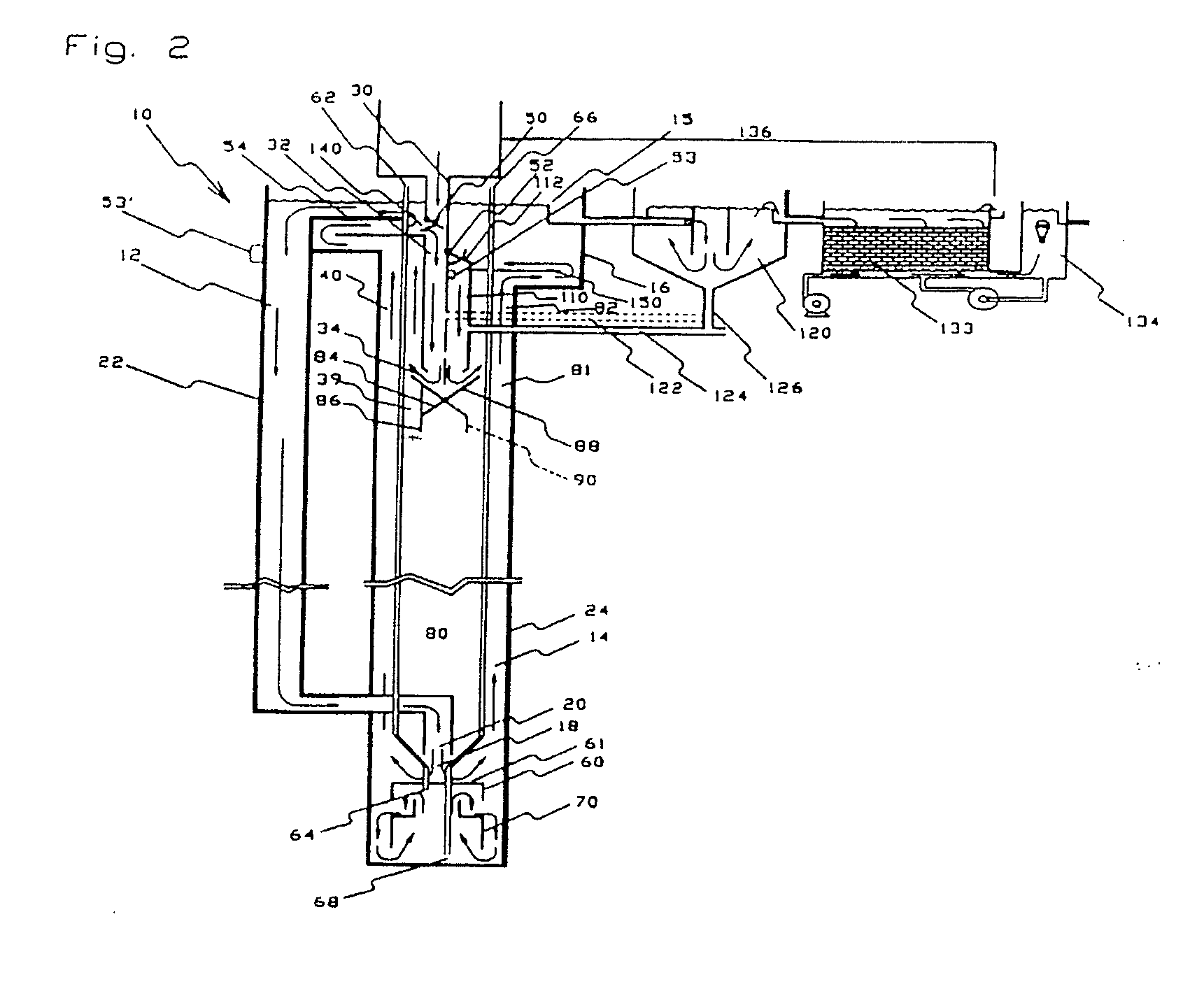Methods And Apparatus For Biological Treatment of Waste Waters
a biological water and sewage technology, applied in biological water/sewage treatment, separation processes, filtration separation, etc., can solve the problems of aerating or facilitating the processing of sewage, requiring substantial processing, and lack of water, so as to improve the diffusion of gas and increase the time
- Summary
- Abstract
- Description
- Claims
- Application Information
AI Technical Summary
Benefits of technology
Problems solved by technology
Method used
Image
Examples
Embodiment Construction
[0086]As illustrated in the attached Figures, the instant invention provides a long vertical shaft bioreactor 10 for wastewater treatment. The bioreactor of the invention shares a number of structural and functional characteristics with previously described vertical shaft bioreactor systems (see, e.g., U.S. Pat. Nos. 4,279,754, 5,645,726, and 5,650,070 issued to Pollock, each incorporated herein by reference), but departs in several important and novel aspects therefrom.
[0087]In reference to FIG. 1, the vertical shaft bioreactor 10 of the invention features a wastewater circulation system which includes two or more substantially vertical channels, including at least one downflow channel, or downcomer channel 12, fluidly interconnected in a circuitous, open or closed, path with at least one upflow channel, or riser channel 14. The downcomer and riser channels are typically interconnected at their tipper ends via a surface basin or head tank 16, which may be open or closed, and at a l...
PUM
| Property | Measurement | Unit |
|---|---|---|
| pore size | aaaaa | aaaaa |
| pore size | aaaaa | aaaaa |
| diameter×10 | aaaaa | aaaaa |
Abstract
Description
Claims
Application Information
 Login to View More
Login to View More - R&D
- Intellectual Property
- Life Sciences
- Materials
- Tech Scout
- Unparalleled Data Quality
- Higher Quality Content
- 60% Fewer Hallucinations
Browse by: Latest US Patents, China's latest patents, Technical Efficacy Thesaurus, Application Domain, Technology Topic, Popular Technical Reports.
© 2025 PatSnap. All rights reserved.Legal|Privacy policy|Modern Slavery Act Transparency Statement|Sitemap|About US| Contact US: help@patsnap.com



